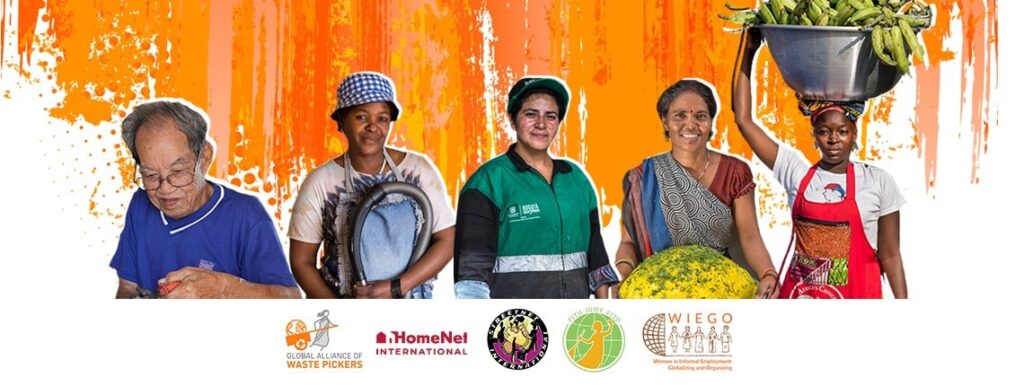Yet throughout the year, informal workers have faced limited and patchy government relief, ongoing exclusion from recovery plans and policies, and continued violence and harassment in many contexts.
We urge policymakers to do the following as they plan for economic recovery:
Invest in policies to connect workers to social assistance, inclusive social insurance, and health and child care.
Global financial institutions can support governments in doing so by ending practices that result in harmful fiscal consolidation measures that disproportionately impact poor and vulnerable workers and squeeze vital public spending.
Ensure that social protection policies and labour protections work together to protect workers from poverty.
All workers have the right to collective bargaining and to be invited to the table when governments are discussing policies that will affect their lives. All work, including informal work, must be covered by labour protections so that all workers can access decent work.
Municipal governments must end the practice of evicting informal workers from public spaces and ensure that livelihood security, especially for women informal workers, is protected. Workers and their livelihoods must be prioritized in urban planning processes.
Governments and multilateral institutions must ensure that global brands bear responsibility for worker welfare regardless of their proximity in the supply chain and end practices that profit off exploitative working conditions, particularly for women who work from home as dependent contractors in global supply chains.
Recognize the critical role informal worker organizations have played in the COVID-19 relief effort and must play in recovery.
Informal worker organizations were vital actors in the COVID-19 relief effort. From sharing life-saving health information, to mobilizing donations and delivering food rations, masks and hand sanitizer, their crucial role in linking workers to crisis relief should be recognized.
To do so, governments must include informal workers in key decision-making platforms, ensure that workers’ organizations involved in delivering services to workers are supported financially, and provide support to informal worker organizations which were critical in providing relief to their members when governments fell short.
A year into the pandemic, governments are recognizing that informal workers are essential to local and global economies and societies. Urgent and appropriate investments in social assistance, social insurance and key social services, including health and child care, are needed to ensure the world’s 2 billion informal workers can recover their livelihoods now and protect them in the future.
The undersigned organizations are members of the growing global movement of informal economy workers and together represent over 2.1 million members worldwide.
Elizabeth Tang, General Secretary
Oksana Abboud, International Coordinator
Janhavi Dave, International Coordinator
Samuel Samzao (French)
Jerry Johnson (English)


